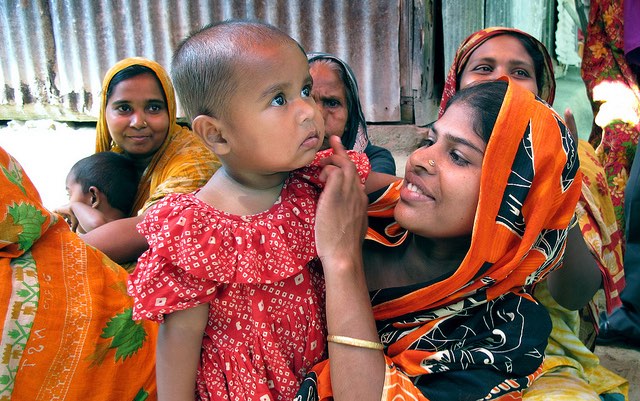It has become painfully clear that we have faltered in our progress towards meeting the U.N. Sustainable Development Goal to eliminate hunger worldwide by 2030. After many years of great progress in reducing global hunger, progress has slowed recently and, in some places, even reversed. The latest report from the Intergovernmental Panel on Climate Change underscores the urgency: Many of the countries most vulnerable to hunger and conflict now are also the most threatened by increased food insecurity brought on by catastrophic changes in climate.
The goal of ending hunger and malnutrition by 2030 is still within reach, however, if we collectively act to accelerate the progress we have already made.
It’s time to invest in accelerators—the policies, interventions, and innovations that can overcome barriers and speed progress toward ending hunger and malnutrition. They have potential to create transformative opportunities for reducing hunger and malnutrition quickly and sustainably across developing countries.
Bangladesh provides a prime example of how countrywide strategies that employ different combinations of policies and investments to spur growth, provide social protection, and promote healthy diets can accelerate progress. Between 1990 and 2016 the country made some of the fastest and greatest reductions in malnutrition in history, cutting undernourishment and child stunting both roughly in half.
Successive governments in Bangladesh enabled this by creating public policies that stimulated pro-poor economic growth, boosted agricultural production, and launched social safety net programs. Together they provided an environment of improved food availability and opportunities for households to lift themselves out of hunger and malnutrition.
China, Rwanda, Brazil, and Viet Nam have also had similar success by combining policies and investments into a countrywide strategy. Underlying all these stories have been effective institutions and strong leadership.
Interventions that integrate multisectoral approaches and have particular promise include those that leverage linkages between agriculture and nutrition, the multiplying effect of empowering women, and the power of behavior change communications.
Recent research findings clearly show linking agricultural interventions to nutritional goals significantly improves access to nutritious foods and dietary diversity. Including behavior change communications that encourage the adoption of optimal nutrition and child feeding practices with social protection programs significantly boosts the impact these programs can have. Research also suggests interventions that empower women could have a greater impact than those that do not.
These accelerators can be game changers to jumpstart progress.
In addition to policies and programs, innovations and new technologies are making rapid progress more possible and scalable than ever. Biofortification technology, which improves the nutrient value of staple crops, is helping reduce harmful health conditions like anemia and improve cognitive development across the globe, resulting in a more productive and healthy human capital. Lab-grown meats offer potential to deliver cheap and sustainable protein if millions of smallholder farmers can also benefit from these technologies.
The acceleration will not come automatically. Investment in multi-sector policy design, implementation capacity, in people, in data, in innovations and in leadership will be essential.
Investing in the design, refinement, and implementation of effective policies incorporating multisectoral reforms can lead to fast action on not only hunger and malnutrition but also on closely related issues: Poverty, disempowerment, and access to healthcare and education. Investing in multiple-win technologies—from the lab to the field—can generate a host of solutions for speeding and scaling up progress. Investing in timely, reliable data will allow us to measure progress and build upon successful approaches. Investing in innovative financing for accelerator approaches creates the opportunity to raise additional funds necessary for implementing effective solutions.
But the fullest benefits of these accelerators can only be realized by investing in people and leadership. Without improvements in income, knowledge, and capacity, people cannot fully benefit from the policies, programs, and opportunities to improve their food and nutrition security. We need leaders to create the political will and commitment necessary for tackling this challenge.
We have the tools and the knowledge to eliminate hunger by 2030. At our recent global conference, IFPRI and the U.N. Food and Agriculture Organization (FAO) enabled the sharing of these tools and knowledge with key global leaders, practitioners, and researchers, to help catalyze the next decade of rapid reductions in chronic hunger and malnutrition.
As U.N. Secretary General Antonio Guterres said at the recent Paris Peace Forum, “when nations work together, hope prevails.” The baton is now in the hands of and decisionmakers—at community, national, and global levels—to use this knowledge to invest in multisectoral policies and programs, innovations, and human capital that will drive faster progress. The challenge of eliminating hunger is formidable, but accelerating our actions can bring us closer to reach the 2030 goal.
Shenggen Fan is Director General of IFPRI. This post first appeared on the Thomson Reuters Foundation News site.







